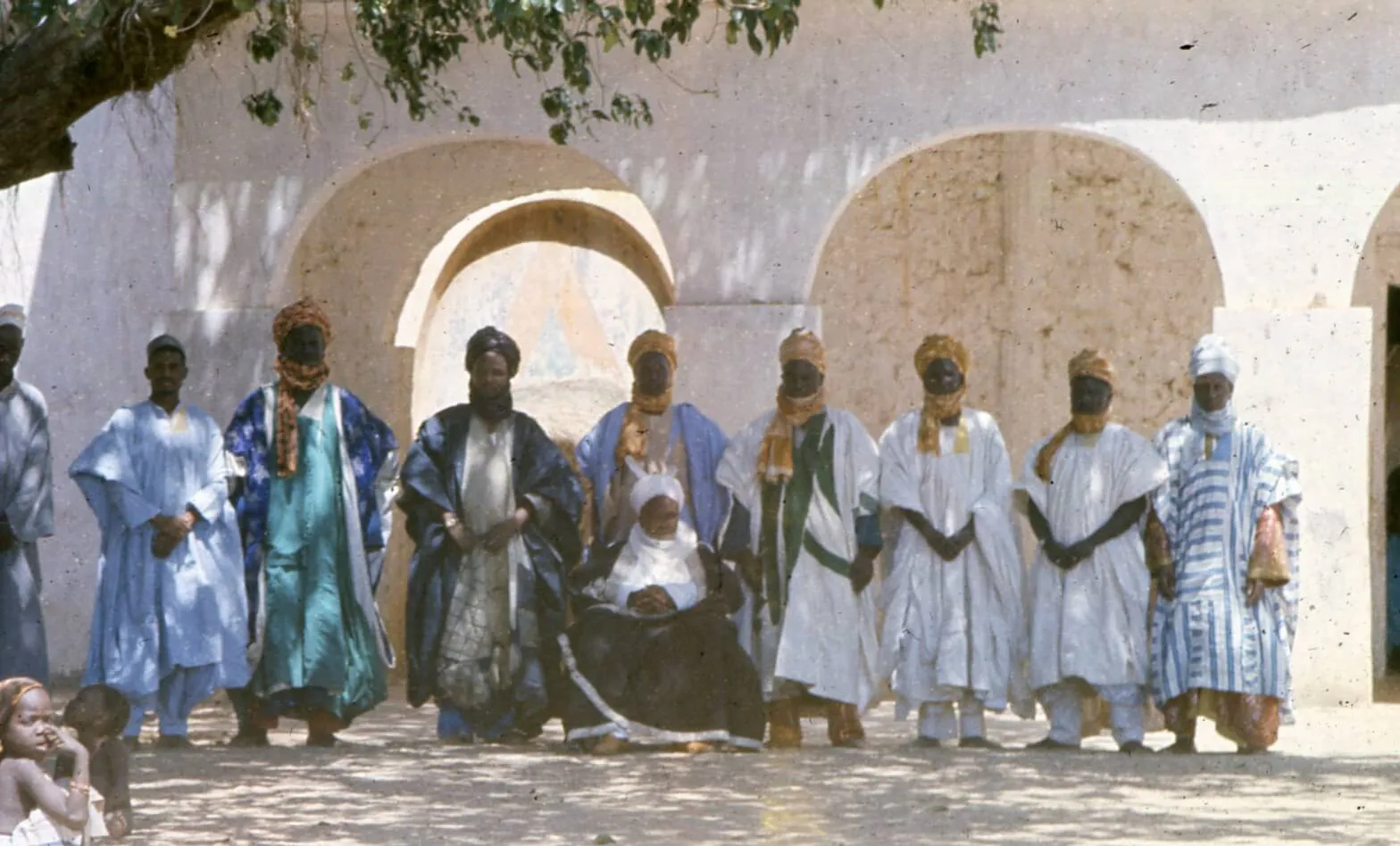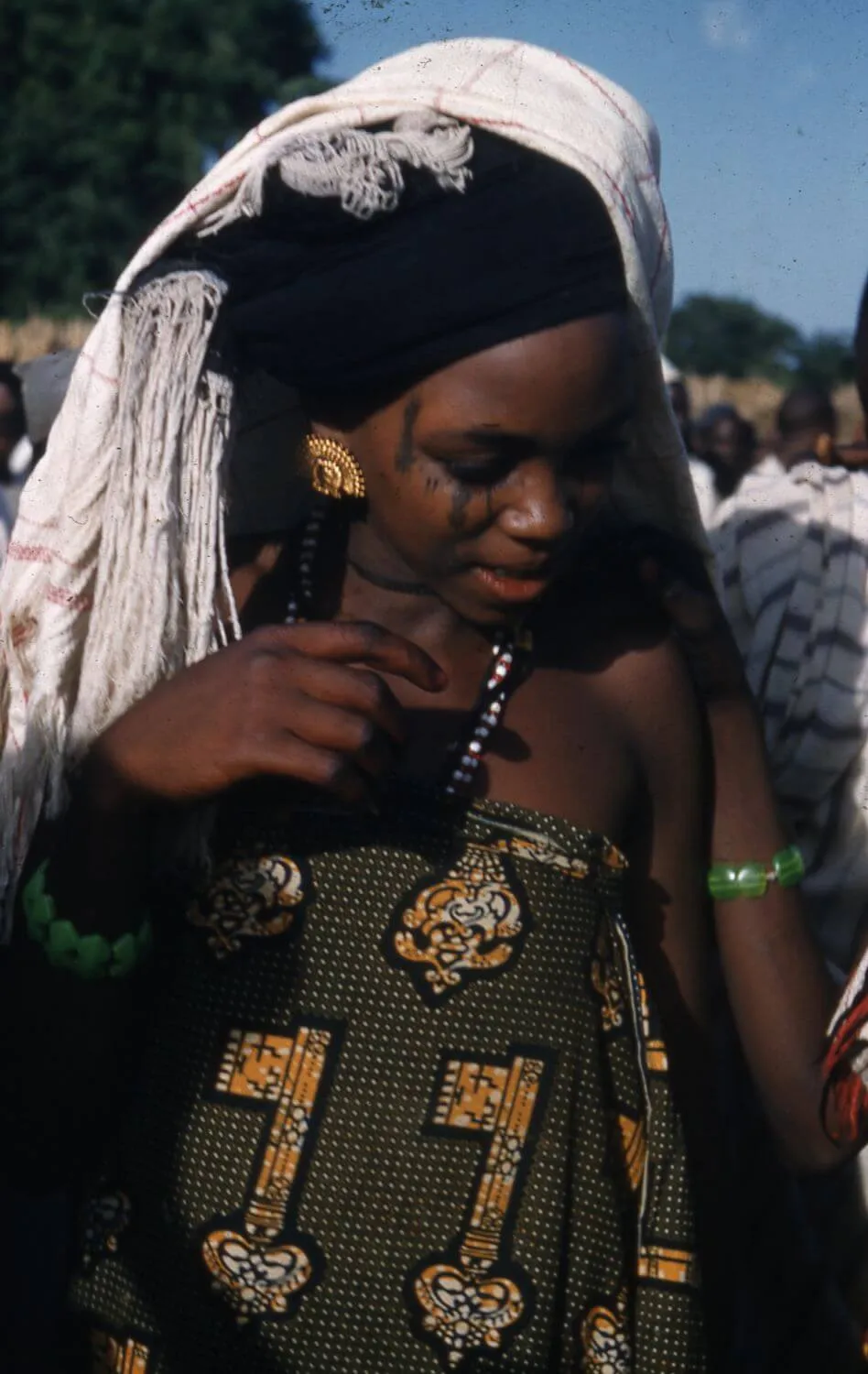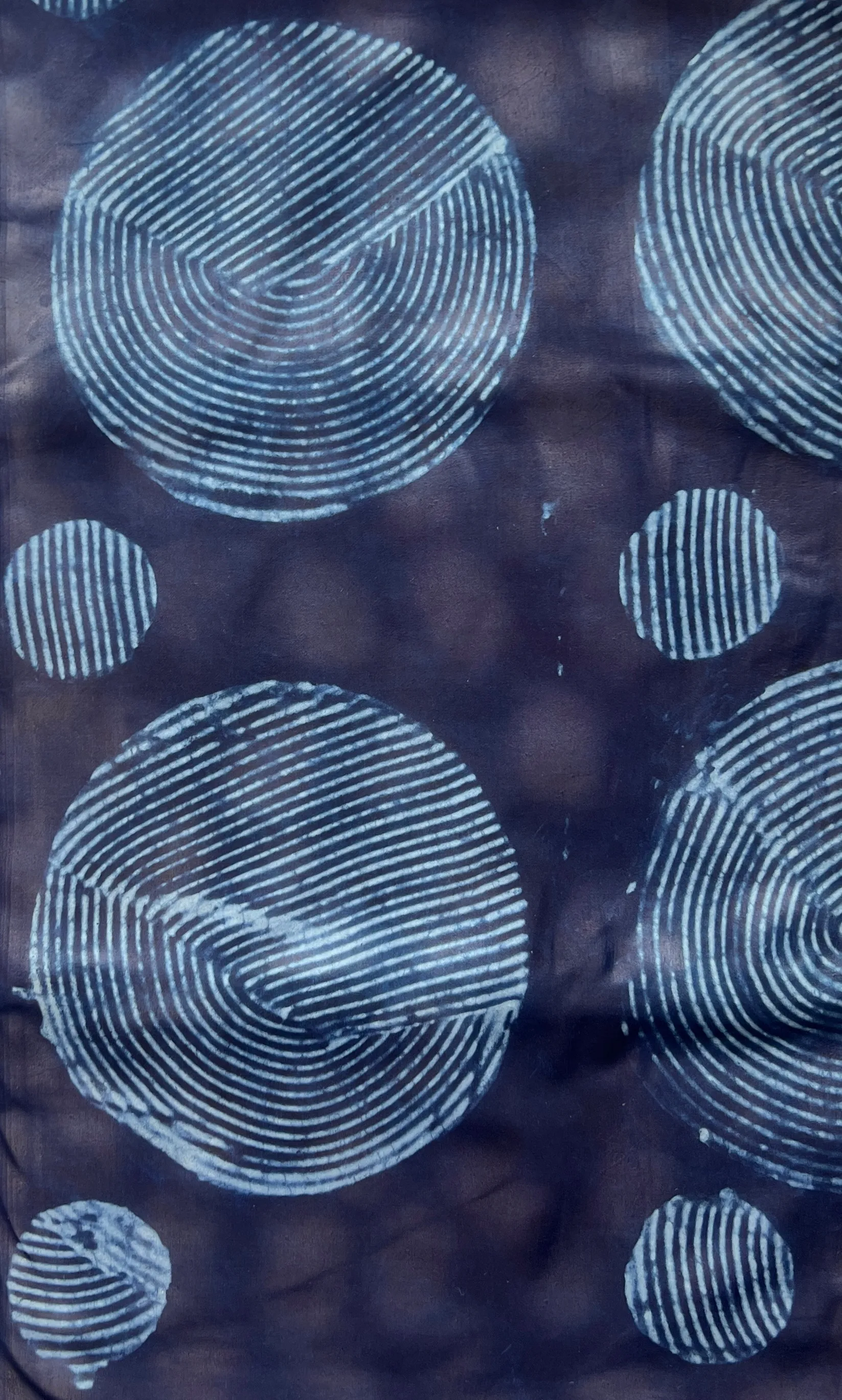| Ahmadu Bello University (ABU) | University of Exeter (UoE) Atlantica symposium |
From Adire to Ankara
Decolonizing the Study of Material Cultures in Northern and
South-Western Nigeria:
Hausa-Fulani and Yoruba textile traditions and the Àsìkò Art School
Date:
Monday 30 June, 11-3.30pm
Venue:
Reed Hall, University of Exeter
Teams link:
https://tinyurl.com/ms94heum

Jean Trevor Archive, c. 1968.

Jean Trevor Archive, c. 1968.
Jean Trevor Archive, c. 1968.
The Hausa-Fulani and Yoruba cultures in Nigeria have distinct textile traditions, though they have also influenced each other strongly. Hausa weaving, dyeing, and embroidery are renowned for high-quality cotton fabrics, while contemporary Yoruba textile culture incorporates European and Asian fabrics and uses silks and cotton for garments. Indigo tie-dye, a traditional resist dyeing technique, is prominent in both Hausa-Fulani and Yoruba textiles, particularly in the form of Adire (Yoruba) and similar practices among the Hausa. Dutch wax prints, also known as African wax prints or Ankara, hold significant cultural meaning in both traditions. They are more than just fabric; they are a form of visual language, a means of communication, and a symbol of identity. This half-day symposium will seek to explore how colonialism worked to uproot and reinterpret such traditions - a form of epistemic violence described by Ngugi Wa Thiongo (1986) as a "cultural bomb” - and how contemporary artists, curators and scholars are seeking to resist such appropriation, to decolonize indigenous culture in West Africa and to offer an alternative, culturally rooted approach.
Zainab Bello, based at Ahmadu Bello University in Zaria, focuses on the impact of colonialism on Hausa-Fulani textile cultures, and how this has diminished the role of wax prints in conveying traditional Hausa folktales, leading to a growing disregard for indigenous identity and heritage. Peju Layiwola, Professor of Art History at the University of Lagos, is currently Mellon Curatorial Fellow at the Stanley Museum of Art, University of Iowa, and has researched extensively into the social history of adire fabrics and its importance in Yoruba culture, including through her own artistic practice and exhibition-making. Oyindamola Faithful is Executive and Artistic Director of the Centre for Contemporary Art (CCA) Lagos and curator of the Àsìkò Art School, an experimental art-school project for artists and curators living and working in Africa which engages with indigenous cultural practices whilst also exploring contemporary art across the continent, fostering critical dialogue and innovation.
In relation to this topic, the University of Exeter has a unique and fascinating archive in Special Collections that documents the work of Jean Trevor with Hausa girls and young women in northern Nigeria during the 1960s and early 1970s, when she was based between Ahmadu Bello University and the University of Exeter. The papers, photographs, correspondence and other documents in the Jean Trevor Archive provide insights into different aspects of Nigerian life during this period, including developments in both secondary and higher education, agricultural methods, Islamic movements, colonialism and the British relations with African countries at the end of the empire, as well as community health, textiles and costume, marriage customs and popular culture. To mark the 50th anniversary of the death of Jean Trevor this month, the symposium will be accompanied by a small display of materials from the archive, as well as a discussion of her work and its continuing relevance led by archivist, James Downs.
Please see James Downs’ blog about the Jean Trevor Archive at University of Exeter here.
Schedule
- 11.00amRegistration & coffee
- 11.30amWelcome, William Gallois, UoE
- 11.40am
Zainab Bello, ABU
Video screening
De-colonising Hausa-Fulani Textiles - 12.20pm
James Downs, Special Collections, UoE
Jean Trevor Archive - 12.35pm
In conversation with Tom Trevor, UoE
- 12.45pm
Lunch
viewing material from the Jean Trevor Archive - 1.45pm
Peju Layiwola, UNILAG
Reimagining Indigo video screening - 2.00pm
Peju Layiwola (online)
Adire and Yoruba material culture - 2.20pm
In conversation with Zainab Bello, ABU
- 2.40pm
Oyindamola Faithful, CCA Lagos (online)
Àsìkò Art School - 3.00pm
Q&A, chaired by William Gallois
- 3.30pm
Close & refreshments
To register to attend virtually or in person please email atlantica@exeter.ac.uk







